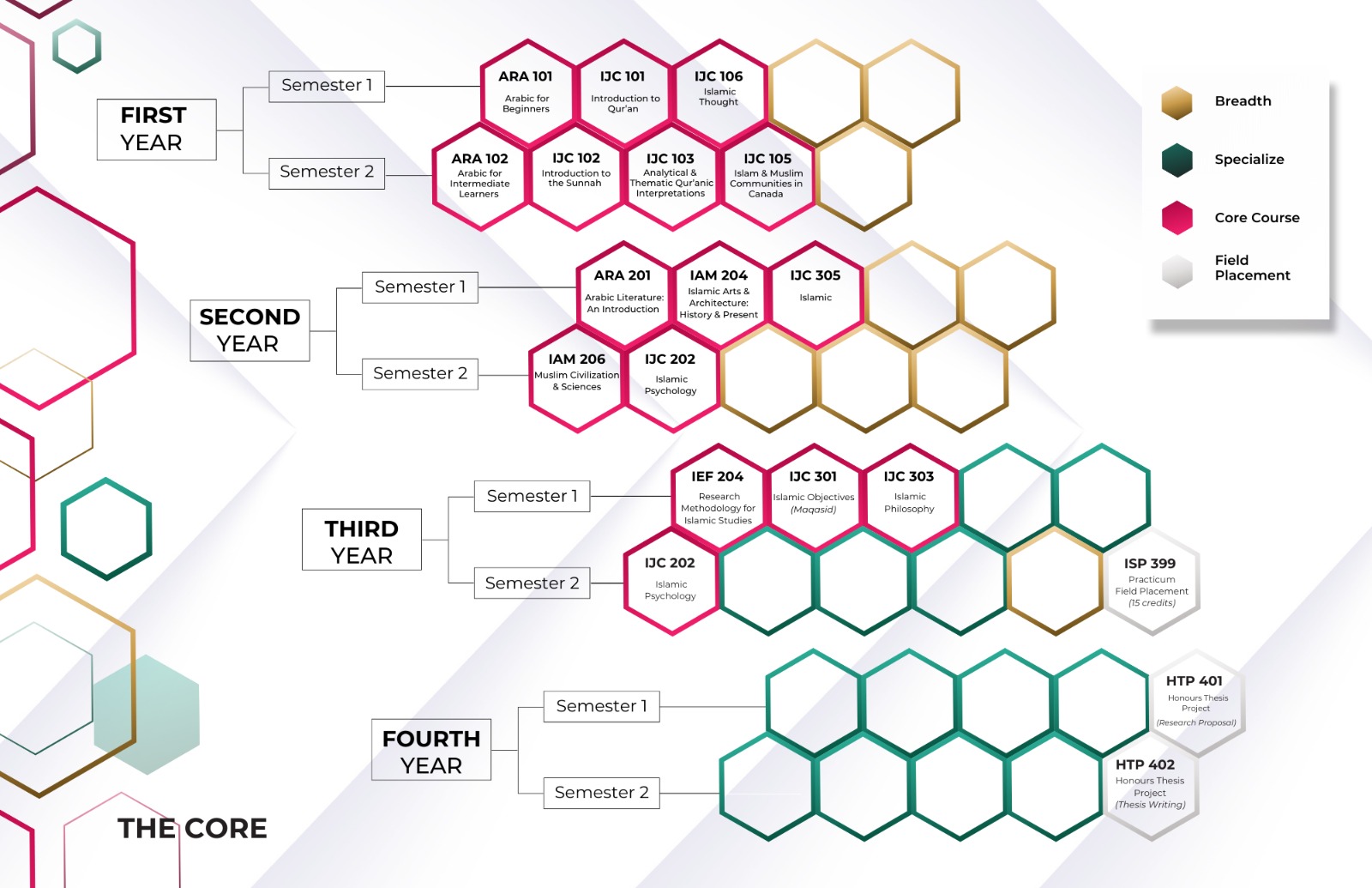Foundations For an Islamic Worldview
At the heart of Academic program is the Core Curriculum which is composed of compulsory courses that that are designed to provide a robust interdisciplinary foundation which is deeply esteemed in Islamic-world view.
It integrates Islamic knowledge and perspectives across disciplinary boundaries with a particular emphasis on the disciplines of Qurʾan and Sunnah studies, Islamic Thought and Objectives of Islamic Law, Islamic Economics and Finance, and Muslim Cultures and Communities.
The syllabus introduces major religious traditions, offers cumulative levels of depth in the analysis of these traditions and their theological texts, and critically compares specific features – such as ethics and morals (akhlaq), acts of worship (‘ibadat), and Tazkiya.
It emphasizes rigorous intellectual inquiry and experiential learning with a focus on the development of broader learning skills like problem-solving, project management, teamwork and communication. It is designed to prepare students for several careers including but not limited to: Law; Journalism; Media; Policy development; Business; Social Work; Ethics Consultation; Politics; Banking.
This rigorous core program is designed to provide our students with solid knowledge related to the primary sources of Islamic Studies such as the Qurʾan, the Sunnah of the Prophet, Islamic Thought, Islamic Objectives (Maqasid), Islamic psychology, Islamic sociology, Islamic Political Theory, Islamic Philosophy, Muslim Civilization and Sciences, as well as Islamic Arts.
Students should acquire the ability to analyze and discuss classical and contemporary texts in the field of Islamic studies. They will enhance their capacity for critical engagement with the Islamic original foundational works.
Students will become confident in their abilities to articulate clearly and persuasively on important matters of human concern from Islamic worldview context and will learn how to integrate Islamic fundamental concepts in their ethical and intellectual development.
This Core program is a set of 16 courses (48 academic credits) all students must take during their 4-year degree. All students must also successfully complete a practicum placement – normally in the summer semester between years 3 and 4 – which carries a 15-credit equivalent (200-hours over a 12-week term in a local organization).
CORE PROGRAM
This Core program is a set of 16 courses (48 academic credits) all students must take during their 4-year degree. All students must also successfully complete a practicum placement – normally in the summer semester between years 3 and 4 – which carries a 15-credit equivalent (200-hours over a 12-week term in a local organization).
The Core Program is composed of 3 parts:
16 courses (48 Academic Credits) Practicum Placement (15 Credits) Capstone Research Project (2 courses )
LEARNING TO LEARN
Students will be required to undertake a major research project which includes Honours Thesis Project (HTP 401 Honours Thesis Project 1 (Research Proposal), and HTP 402 Honours Thesis Project 2 (Thesis Submission)) to be conducted in the fourth year. This 2-course equivalent capstone Honours Thesis project gives students the opportunity to carry out high-level research within their area of interest in the discipline of Islamic Studies.

Beyond Classroom Learning
All students must successfully complete a practicum placement – normally in the summer
semester between years 3 and 4 – which carries a 15-credit equivalent (200 hours).
This internship placement provides students with opportunities to network with industry and to evaluate potential career opportunities in the field of Islamic Studies in general or the specialization in which the student is enrolled in. The internship assists students in developing professional skills, gaining hands-on experience.
The placement could be community institutions such as:


























